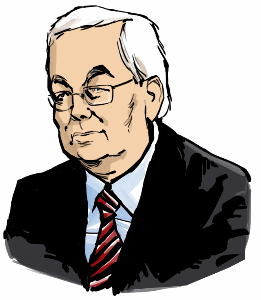© Gunnar Tómasson
28 March 2017
Summary
878864
1000 = Light of the World
872813 = Snorri Sturluson’s “Murder” – # II.
5915 = Blóð Krists – Christ’s Blood in Icelandic
-7864 = Jesus Patibilis – Exits Creation at Mission’s End¹
7000 = Microcosmos – Man in God’s Image
878864
***
I. To be or not to be; that is the question.²
(Hamlet, Act III, Sc. i, First folio, 1623)
878864
5415 = Enter Hamlet.
Hamlet
18050 = To be, or not to be, that is the Question:
19549 = Whether ’tis Nobler in the minde to suffer
23467 = The Slings and Arrowes of outragious Fortune,
17893 = Or to take Armes against a Sea of troubles,
16211 = And by opposing end them: to dye, to sleepe
13853 = No more; and by a sleepe, to say we end
20133 = The Heart-ake, and the thousand Naturall shockes
19800 = That Flesh is heyre too? ‘Tis a consummation
17421 = Deuoutly to be wish’d. To dye to sleepe,
19236 = To sleepe, perchance to Dreame; I, there’s the rub,
19794 = For in that sleepe of death, what dreames may come,
21218 = When we haue shufflel’d off this mortall coile,
20087 = Must giue vs pawse. There’s the respect
13898 = That makes Calamity of so long life:
24656 = For who would beare the Whips and Scornes of time,
24952 = The Oppressors wrong, the poore mans Contumely,
18734 = The pangs of dispriz’d Loue, the Lawes delay,
16768 = The insolence of Office, and the Spurnes
20720 = That patient merit of the vnworthy takes,
17879 = When he himselfe might his Quietus make
21696 = With a bare Bodkin? Who would these Fardles beare
17807 = To grunt and sweat vnder a weary life,
17426 = But that the dread of something after death,
21935 = The vndiscouered Countrey, from whose Borne
20927 = No Traueller returnes, Puzels the will,
19000 = And makes vs rather beare those illes we haue,
20119 = Then flye to others that we know not of.
20260 = Thus Conscience does make Cowards of vs all,
18787 = And thus the Natiue hew of Resolution
21086 = Is sicklied o’re, with the pale cast of Thought,
17836 = And enterprizes of great pith and moment,
22968 = With this regard their Currants turne away,
18723 = And loose the name of Action. Soft you now,
16746 = The faire Ophelia? Nimph, in thy Orizons
9726 = Be all my sinnes remembred.
Ophelia
5047 = Good my Lord,
17675 = How does your Honor for this many a day?
Hamlet
17391 = I humbly thanke you: well, well, well.
Ophelia
15437 = My Lord, I haue Remembrances of yours,
14927 = That I haue longed long to re-deliuer.
12985 = I pray you now, receiue them.
Hamlet
12520 = No, no, I neuer gaue you ought.
Ophelia
19402 = My honor’d Lord, I know right well you did,
24384 = And with them words of so sweet breath compos’d,
19172 = As made the things more rich, then perfume left:
14959 = Take these againe, for to the Noble minde
24436 = Rich gifts wax poore, when giuers proue vnkinde.
5753 = There my Lord.
878864
II. Snorri Sturluson’s “Murder”
(Íslendinga saga, 151. kafli)
872813
24923 = Þeir Kolbeinn ungi ok Gizurr fundust í þann tíma á Kili
16169 = ok gerðu ráð sín, þau er síðan kómu fram.
17253 = Þetta sumar var veginn Kolr inn auðgi.
12973 = Árni, er beiskr var kallaðr, vá hann.
22206 = Síðan hljóp hann til Gizurar, ok tók hann við honum.
22202 = Þá er Gizurr kom af Kili, stefndi hann mönnum at sér.
33041 = Váru þar fyrir þeir bræðr, Klængr ok Ormr, Loftr byskupsson, Árni óreiða.
28097 = Helt hann þá upp bréfum þeim, er þeir Eyvindr ok Árni höfðu út haft.
20569 = Var þar á, að Gizurr skyldi Snorra láta utan fara,
17397 = hvárt er honum þætti ljúft eða leitt,
16385 = eða drepa hann at öðrum kosti fyrir þat,
15013 = er hann hafði farit út í banni konungs.
20247 = Kallaði Hákon konungr Snorra landráðamann við sik.
25991 = Sagði Gizurr, at hann vildi með engu móti brjóta bréf konungs,
23272 = en kvaðst vita, at Snorri myndi eigi ónauðigr utan fara.
21724 = Kveðst Gizurr þá vildu til fara ok taka Snorra.
26902 = Ormr vildi ekki vera í þessi ráðagerð, ok reið hann heim á Breiðabólstað.
31576 = Gizurr dró þá lið saman ok sendi þá bræðr vestr til Borgarfjarðar á njósn,
8421 = Árna beisk ok Svart.
18469 = En Gizurr reið frá liðinu með sjau tigi manna,
28447 = en Loft byskupsson lét hann vera fyrir því liðinu, er síðar fór.
20530 = Klængr reið á Kjalarnes eftir liði ok svá upp í herað.
29224 = Gizurr kom í Reykjaholt um nóttina eftir Mauritíusmessu.
20587 = Brutu þeir upp skemmuna, er Snorri svaf í.
32733 = En hann hljóp upp ok ór skemmunni í in litlu húsin, er váru við skemmuna.
19023 = Fann hann þar Arnbjörn prest ok talaði við hann.
35331 = Réðu þeir þat, at Snorri gekk í kjallarann, er var undir loftinu þar í húsunum.
21242 = Þeir Gizurr fóru at leita Snorra um húsin.
28547 = Þá fann Gizurr Arnbjörn prest ok spurði, hvar Snorri væri.
8875 = Hann kvaðst eigi vita.
22694 = Gizurr kvað þá eigi sættast mega, ef þeir fyndist eigi.
28330 = Prestr kvað vera mega, at hann fyndist, ef honum væri griðum heitit.
22884 = Eftir þat urðu þeir varir við, hvar Snorri var.
25600 = Ok gengu þeir í kjallarann Markús Marðarson, Símon knútr,
26492 = Árni beiskr, Þorsteinn Guðinason, Þórarinn Ásgrímsson.
13048 = Símon knútr bað Árna höggva hann.
12169 = „Eigi skal höggva,” sagði Snorri.
8594 = „Högg þú,” sagði Símon.
12169 = „Eigi skal höggva,” sagði Snorri.
33464 = Eftir þat veitti Árni honum banasár, ok báðir þeir Þorsteinn unnu á honum.
872813
***
Calculator for converting letters to cipher values is at:
http://www.light-of-truth.com/ciphersaga.htm
¹Jesus Patibilis – The Passible Jesus
(Hans Jonas, The Gnostic Religion)
“As the five angels saw the Light of God in its defilement, they begged the Messenger of Good Tidings, the Mother of Light and the Living Spirit that they send someone to this primal creature to free and save him, reveal to him knowledge and justice, and liberate him from the devils. So they sent Jesus. The Luminous Jesus approached the innocent Adam….” [Citing passage on p. 86] Jesus is here the god with the mission of revelation to man, a more specialized hypostasis or emanation of the Messenger, whose mission was to the captive Light in general and preceded the creation of man. That it is he who makes Adam eat from the Tree of Knowledge explains the Christian accusation that the Manichaeans equated Christ with the serpent in Paradise. Of the content of this revelation, the doctrine concerning “his own self cast into all things” requires comment. It expresses the other aspect of this divine figure: in addition to being the source of all revelatory activity in the history of mankind, he is the personification of all the Light mixed into matter; that is, he is the suffering form of Primal Man. This original and profound interpretation of the figure of Christ was an important article of the Manichaean creed and is known as the doctrine of the Jesus patibilis, the “passible Jesus” who “hangs from every tree,” “is served up bound in every dish,” “every day is born, suffers, and dies.” He is dispersed in all creation, but his most genuine realm and embodiment seems to be the vegetable world, that is, the most passive and the only innocent form of life. Yet at the same time with the active aspect of his nature he is transmundane Nous who, coming from above, liberates this captive substance and continually until the end of the world collects it, i.e., himself, out of the physical dispersal. (Hans Jonas, The Gnostic Religion – The Message of the Alien God and the Beginnings of Christianity, Second Edition, revised, Beacon Press, Boston, 1963, pp. 222-229)
²The Once And Future King
(Giorgio de Santillana)
This is meant to be only an essay. It is a first reconnaissance of a realm well-nigh unexplored and uncharted. From whichever way one enters it, one is caught in the same bewildering circular complexity, as in a labyrinth, for it has no deductive order in the abstract sense, but instead resembles an organism tightly closed in itself, or even better, a monumental „Art of the Fugue.“
The figure of Hamlet as a favorable starting point came by chance. Many other avenues offered themselves, rich in strange symbols and beckoning with great images, but the choice went to Hamlet because he led the mind on a truly inductive quest through a familiar landscape – and one which has the merit of its literary setting. Here is a character deeply present to our awareness, in whom ambiguities and uncertainties, tormented self-questioning and dispassionate insight give a presentiment of the modern mind. His personal drama was that he had to be a hero, but still try to avoid the role Destiny assigned him. His lucid intellect remained above the conflict of motives – in other words, his was and is a truly contemporary consciousness. And yet this character whom the poet made one of us, the first unhappy intellectual, concealed a past as a legendary being, his features predetermined, preshaped by long-standing myth. There was a numinous aura around him, and many clues led up to him. But it was a surprise to find behind the mask an ancient and all-embracing cosmic power – the original master of the dreamed-of first age of the world.
Yet in all his guises he remained strangely himself. The original Amlóði, as his name was in Icelandic legend, shows the same characteristics of melancholy and high intellect. He, too, is a son dedicated to avenge his father, a speaker of cryptic but inescapable truths, an elusive carrier of Fate who must yield once his mission is accomplished and sink once more into concealment in the depths of time to which he belongs: Lord of the Golden Age, the Once and Future King.
This essay will follow the figure farther and farther afield, from the Northland to Rome, from there to Finland, Iran, and India; he will appear again unmistakably in Polynesian legend. Many other Dominions and Powers will materialize to frame him within the proper order.
Amlóði was identified, in the crude and vivid imagery of the Norse, by the ownership of a fabled mill which, in his own time, ground out peace and plenty. Later, in decaying times, it ground out salt; and now finally, having landed at the bottom of the sea, it is grinding rock and sand, creating a vast whirlpool, the Maelstrom (i.e. the grinding stream, from the [Icelandic] verb mala, „to grind“), which is supposed to be a way to the land of the dead. This imagery stands, as the evidence develops, for an astronomical process, the secular shifting of the sun through the signs of the zodiac which determines world-ages, each numbering thousands of years. Each age brings a World Era, a Twilight of the Gods. Great structures collapse; pillars topple which supported the great fabric; floods and cataclysms herald the shaping of a new world. (Hamlet’s Mill – An Essay on Myth and the Frame of Time, 1969; Second Paperback Edition, David R. Godine, Publisher, Boston, 1983, pp. 1-2.)

 Gunnar Tómasson
Gunnar Tómasson